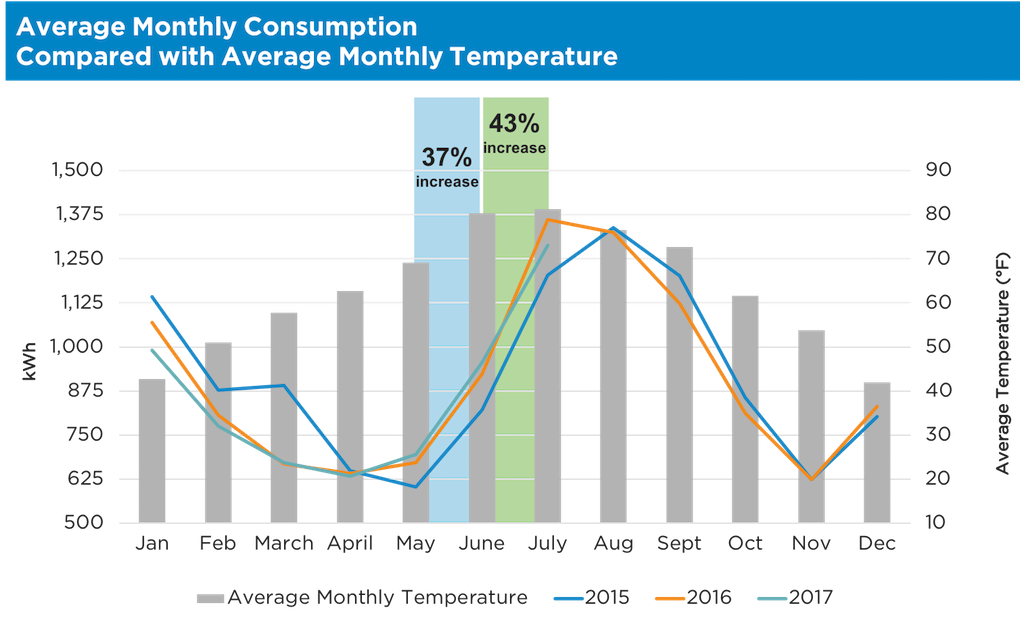Summer is here, which means it’s time to battle the Texas heat with our air conditioners. Did you know weather is the #1 driver of energy use in your home?

Summer is here, which means it’s time to battle the Texas heat with our air conditioners. Did you know weather is the #1 driver of energy use in your home?
That’s right, as the temperature increases, so does your energy use. But there are a few steps you can take to help keep your utility bills in check:
Properly seal your home.
According to EnergyStar, this is the most important thing you can do to ensure your home is cooling (and heating) efficiently. If there are leaks or your home is not sealed properly, that cool air escapes, and your system has to run longer. To start, check your windows, doors and ducts to make sure they’re weather stripped and caulked.
Add insulation.
Another important step you can take to ensure your home is cooling efficiently is insulating your home. The greater the difference in outdoor vs. indoor temperature, the more your cooling system has to work. You can prevent cooling loss and provide resistance to the outside heat with proper insulation. A quick DIY test is to go into your attic and see if the insulation is level with or below your attic joists. If it is, you likely need to add more insulation.
Use a programmable thermostat.
Why cool an empty home? If you leave the house for long periods of time for work, school or other activities, you can take advantage of the features of a programmable thermostat to help you save. EnergyStar has a heating and cooling guide with temperature setting recommendations so you can set your thermostat to savings. For instance, EnergyStar recommends increasing the temperature in your home by up to eight degrees Fahrenheit when you’re gone during the day, and four degrees at night while you sleep. According to the Department of Energy, if you do this for eight hours a day, you can save up to 10 percent on your annual bill.
Lower your blinds.
Especially when you leave for long periods of time, be sure to lower your blinds. According to the Department of Energy, about 76 percent of sunlight that falls on standard double-pane windows becomes heat. They even have a handy guide to share the window coverings that will save you the most energy and money.
Watch out for vampires.
Electric items can draw energy when they are plugged in, even if not turned on, also known as vampire energy or standby power. Try plugging multiple items into a power strip and turning off the power strip when not in use.
For more summer savings tips, check out LP&L’s Powerful Pointers.

